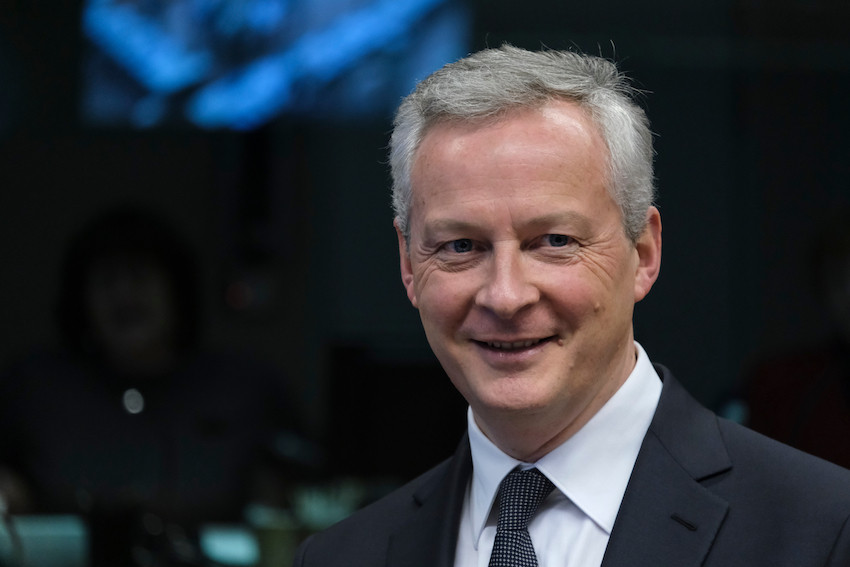European covid-19 economic recovery plan
EU finance ministers agreed to a €500bn covid-19 stimulus scheme. The plan consists of €240bn in credit lines to financially pressed member states from the European Stability Mechanism, the EU bailout fund based in Kirchberg, €200bn in new lending from the European Investment Bank and €100bn for a European Commission initiative to support national short-time working schemes. The deal was struck after a standoff between Italy and the Netherlands, over conditions for the ESM loans, was smoothed over. However, the idea of “coronabonds”, or mutually liable debt, was postponed. Sources: AFP, BBC, DPA, Financial Times, The Guardian, Politico and Reuters.
US jobless numbers hit new record
More than 6.6m Americans filed unemployment claims during the week ending 4 April, the third consecutive week of record filings. The total is now nearly 17m. Sources: BBC, Bloomberg, DPA, The Guardian and NPR.
Opec and Russia close to record oil cut deal
The Opec+ group of oil producing countries, led by Saudi Arabia and Russia, tentatively agreed to reduce production by roughly 20% of world supply in a bid to prop up the oil price, but Mexico has yet to sign off on the plan. Sources: CityAM, CNBC, CNN, Financial Times and Seeking Alpha.
Johnson leaves intensive care
The British prime minister, Boris Johnson, has been transferred from intensive care to a regular ward as he continues to be treated for covid-19. Sources: BBC, CNBC, France 24, The Guardian and NPR.
Amazon researching in-house covid-19 test
The e-commerce giant Amazon said it was trying to develop its own covid-19 test, so it could monitor the health of its workforce, but stated it would “share anything we learn with others.” Sources: Bloomberg, CNBC, Financial Times and Seeking Alpha.
IMF contraction warning
The International Monetary Fund said the coronavirus pandemic would cause the sharpest global recession since the Great Depression of the 1930s, with developing economies hardest hit. The IMF forecast the economy would only mildly recover in 2021. Sources: BBC, Euronews and Reuters.
Frontline employee pay rises
Some European companies are increasing rank-and-file employee salaries in response to the coronavirus crisis, per CNBC. In Britain, this includes certain supermarket chains, per the BBC, and telecom firms, per the Financial Times.
“50 cent” hedge fund made “just a lil bit” in March
Ruffer--a London-based investment manager, nicknamed the “50 cent” fund for its cheap hedges--made $2.6bn in March off the virus-induced market panic. Its flagship fund was still down 0.8% at the end of the first quarter. First reported by: Financial Times. More coverage: Daily Mail, The Guardian and Wealth Manager.
Here are 11 (non-coronavirus) science & technology stories you may have missed
Archaeology: Researchers have used lidar and 3D modelling to map the nearly forgotten Sylt concentration camp on Alderney, one of the UK Channel Islands occupied by the Nazi regime, per National Geographic. Astronomy: Popular Mechanics ranked all 158 confirmed moons in our solar system. Astrophysics: The team that published the first pictures of a black hole has released images of “a colossal jet of excited gas, or plasma, screaming away from another black hole at near light-speed,” per the BBC. Biology: Stressful life events such as imprisonment and menopause can be observed by analysing teeth in a way similar to how tree rings reveal tree growth, per The Guardian. Chemistry: A new enzyme can break down plastic bottles into components that can be used to manufacture new containers, per Ars Technica. Microbiology: Scientists are searching for a treatment to white-nose syndrome, a fungal disease that is killing thousands of bats, per Cnet. Marine biology: Radioactive fallout has helped scientists determine the age of whale sharks, the planet’s largest fish, per Reuters. Neurobiology: Researchers think they’ve deciphered the facial expressions of laboratory mice, per Nature. Oceanography: A defence researcher “hopes to deploy 50,000 sensors across 1m square kilometres of sea, an area considerably larger than Texas,” per The Economist. Space exploration: Nasa has revealed the design of the wheels on its new Mars rover, per The Register.
Golden retriever helps lockdown neighbour
A woman in the US state of Colorado trained her dog to fetch shopping lists from an elderly neighbour who is self-isolating, and then deliver the groceries back to her after the shopping is done, per Bored Panda.
When Facebook Live isn’t really live
Police raided an empty comedy club in Liverpool after it streamed a recorded performance that someone thought was a live show, per Sky News.
Divergent alcohol sale figures
Sales of alcoholic beverages in the US rose by 55% during the first week of mass social distancing measures, per the Associated Press, while in France alcohol sales (aside from beer and rosé wine) dropped by 16% during the first two weeks of movement restrictions, per The Local France.
Today’s breakfast briefing was written by Aaron Grunwald.
